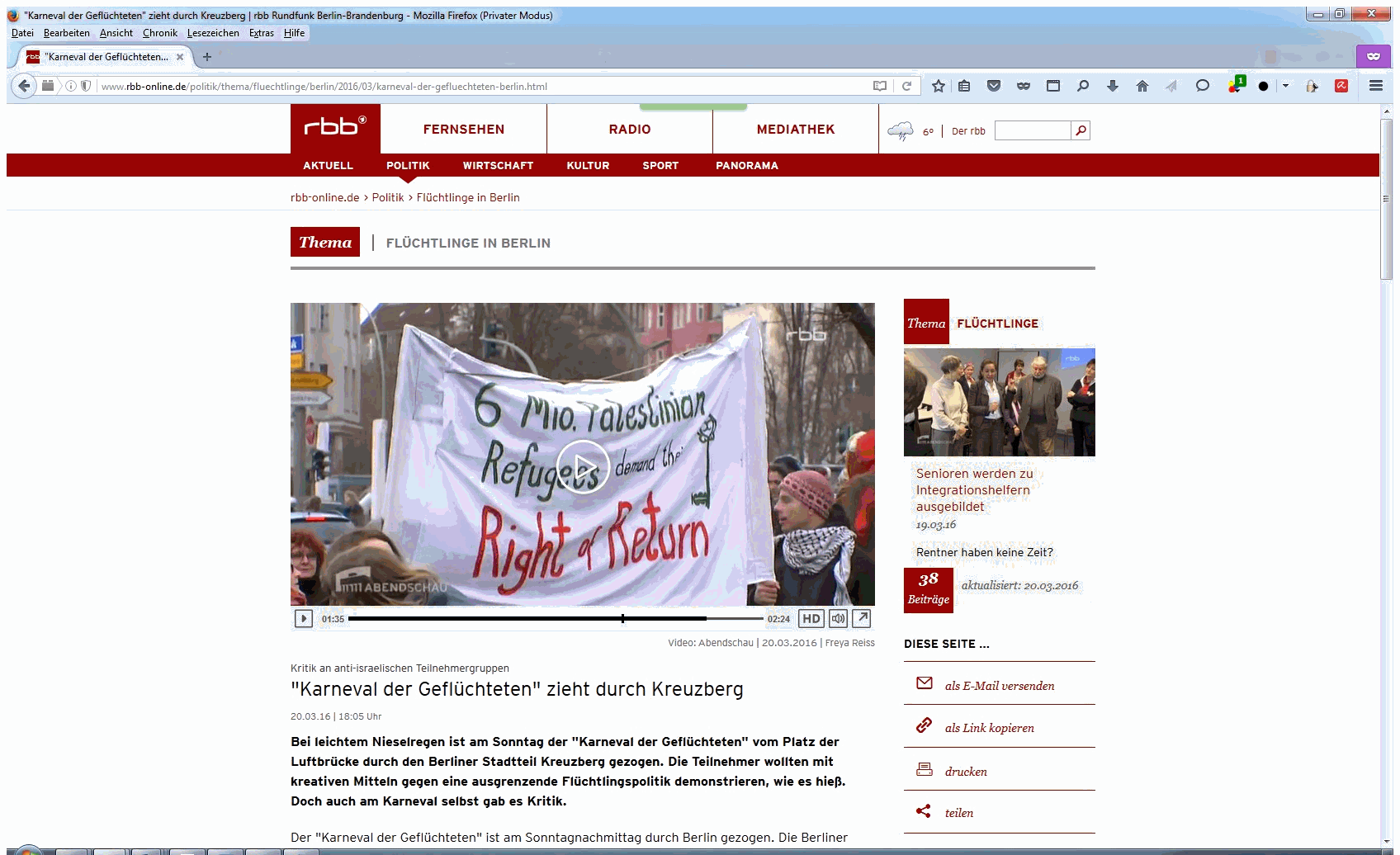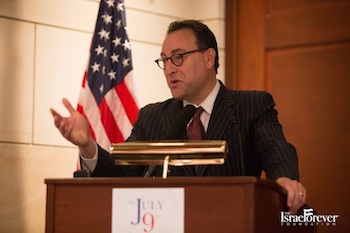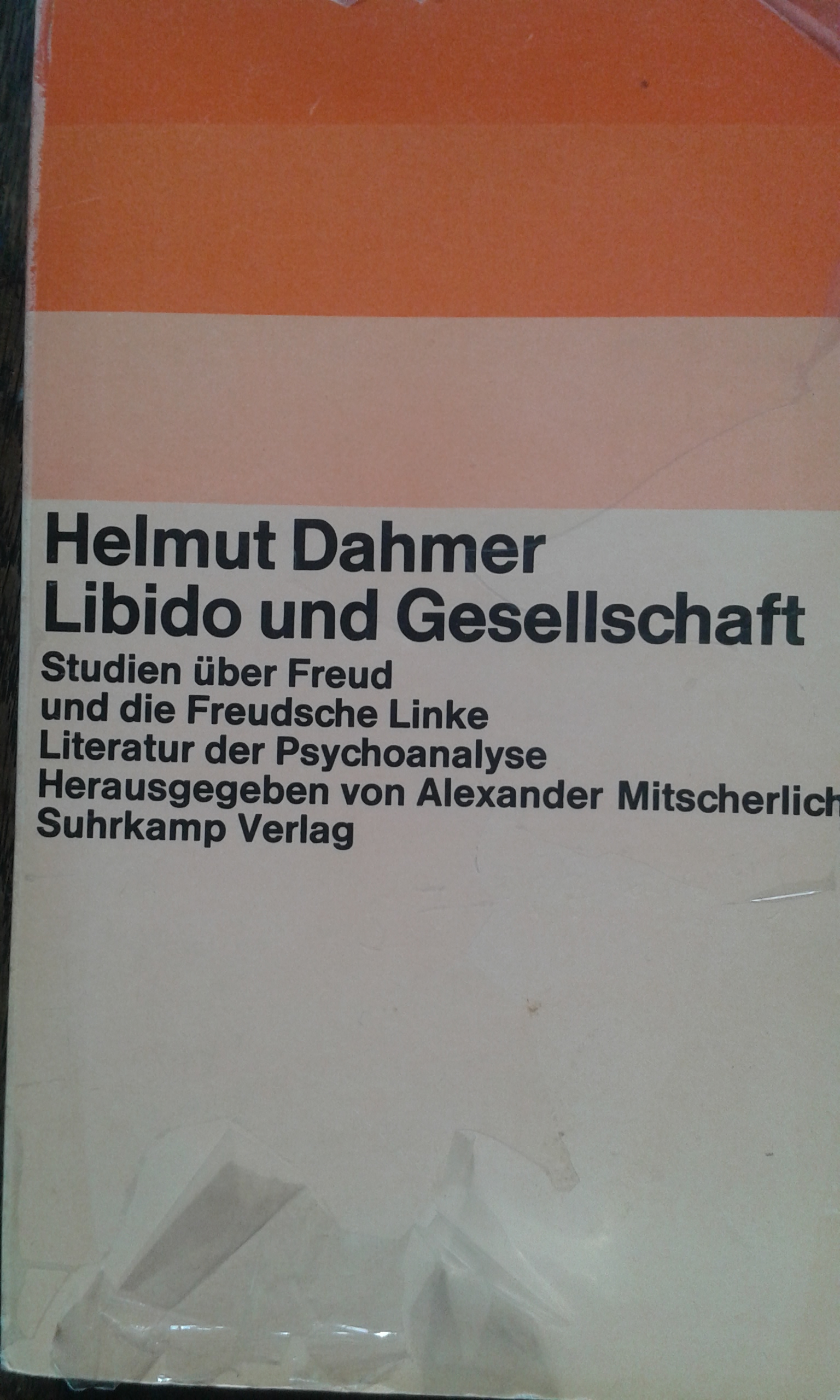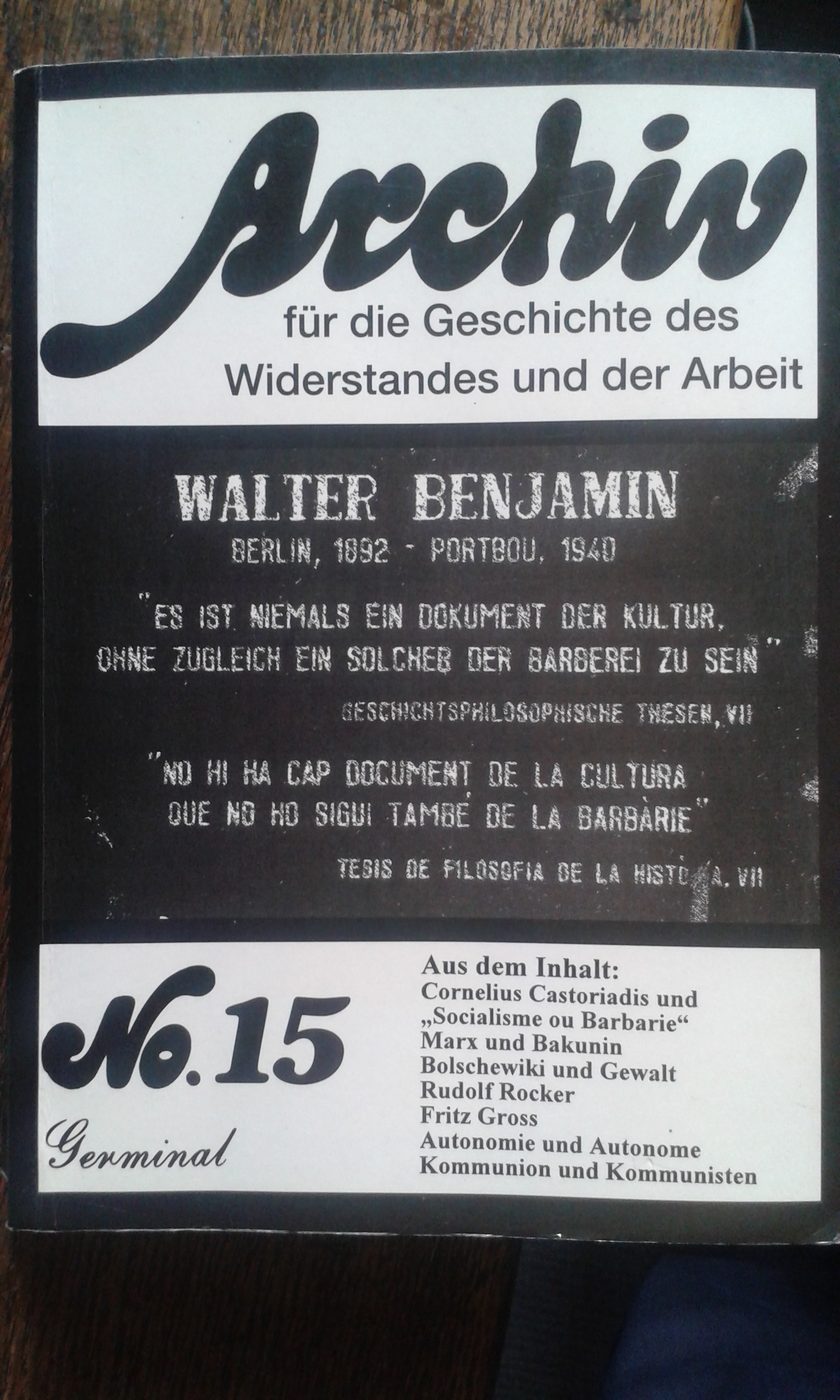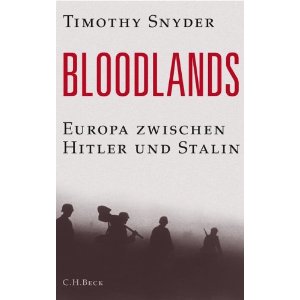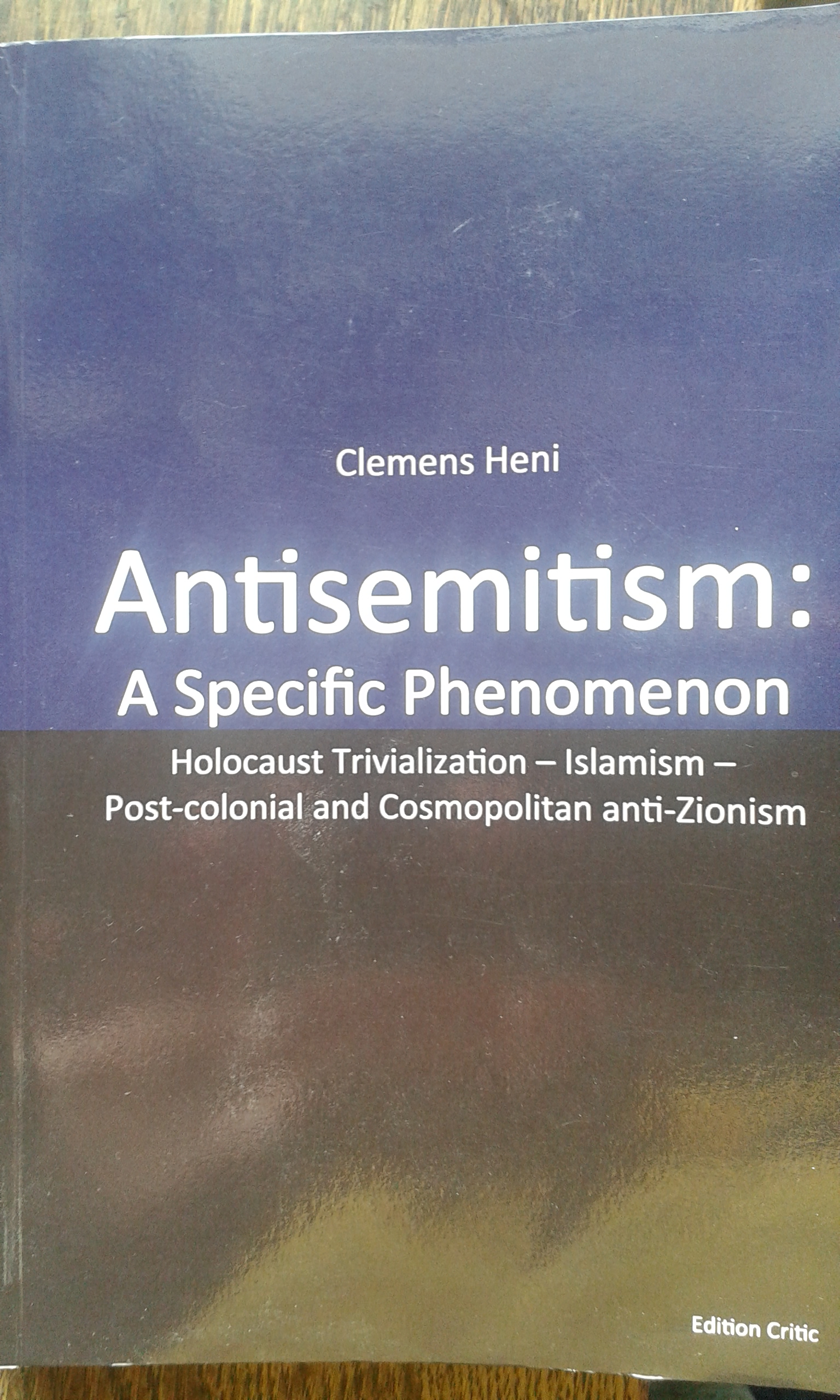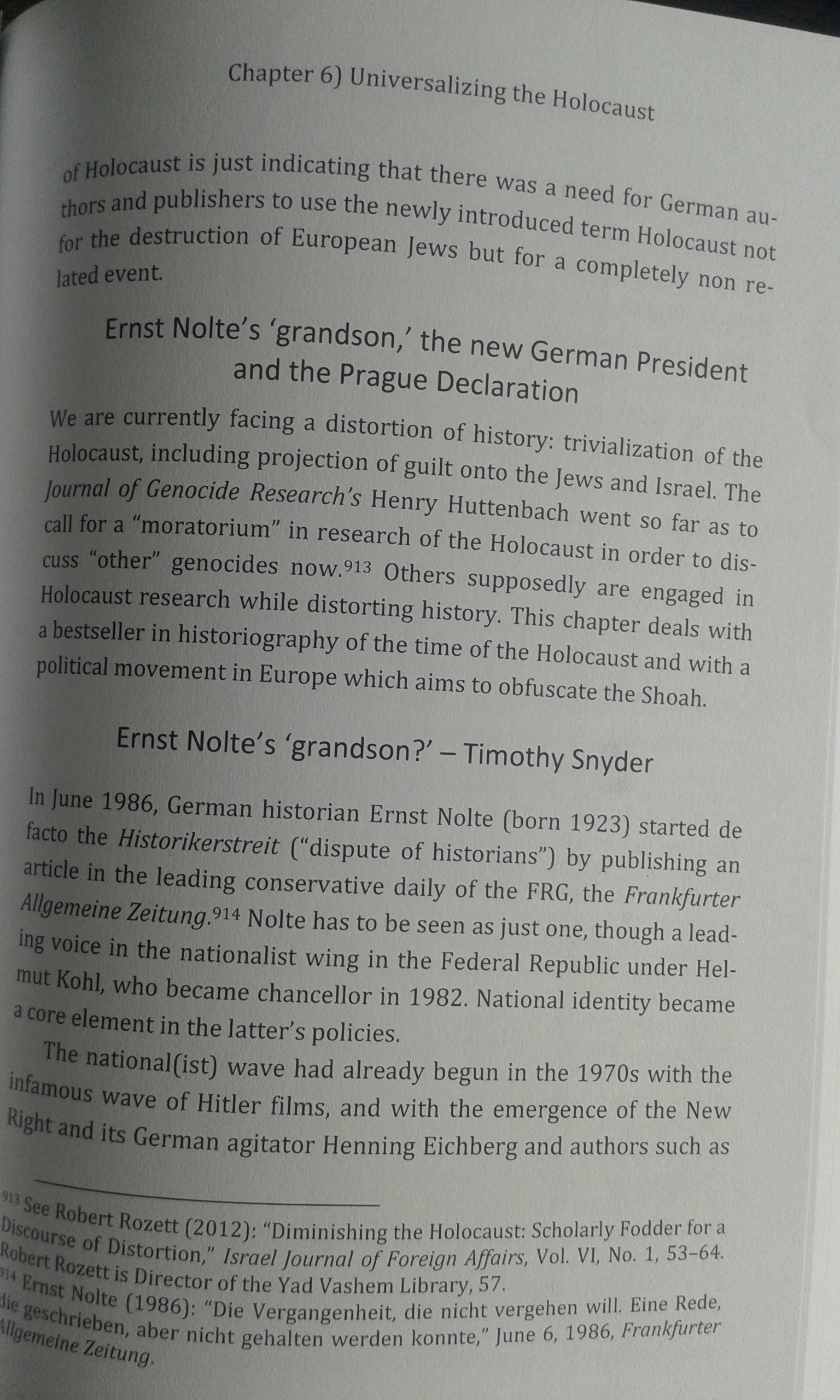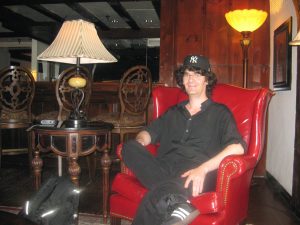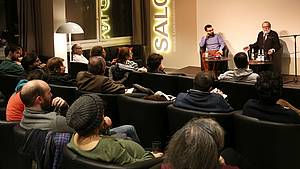Für Stephan T. und den „schwäbischen“ Abiturjahrgang 1989
Wenn ein Feuilletonredakteur folgenden Satz publizieren kann, ist offenkundig, wie es um dieses Land, seine Autoren und Lektoren bestellt ist:
„Den vielen Platz in der ‚Zeit‘ nutzt Sloterdijk, immerhin gebürtiger Schwabe, wenig haushälterisch.“
Wer nicht weiß, wo Schwaben liegt und einen gerade im anti-schwäbischsten Residenzörtchen Karlsruhe Geborenen grundfalsch einkategorisiert und das auch noch meint garnieren zu müssen mit einem ollen, verstaubten, langweiligen Ressentiment gegen die vorgeblich gut haushaltenden Schwaben an und für sich, der sollte sich besser gar nicht erst auf wirklich relevante Gefilde wie der Analyse der extremen oder neuen Rechten begeben. Doch diese Fehler begeht der WELT-Feuilletonredakteur Jan Küveler. Er möchte den „Philosophen“ – ein großes Wort für einen antihumanistischen Schaumschläger und Zitateverwerter – Peter Sloterdijk in Schutz nehmen gegenüber Kritik an dessen rechter Ideologie. Slotderdijk nennt sich selbst in der ZEIT einen Vertreter des „Linkskonservatismus“, und Küveler möchte den „Philosophen“ Sloterdijk gegen den politisch eingreifenden Autor Sloterdijk (wie im CICERO-Interview) ausspielen.
Wofür steht Sloterdijk? Sein Drive ist eine Mischung aus esoterischer Erleuchtung, autoritärem Bhagwan-Kult und einer Art idosynkratischer Abwehr alles „Linken“ oder Liberalen im Allgemeinen und der Kritischen Theorie im Besonderen.
Bereits 1983, anlässlich von Sloterdijks „Kritik der zynischen Vernunft“ konstatierte Jürgen Habermas im „Pflasterstrand“ einen „Schuß teutonischen Ernstes, wenn es an die Substanz geht“.[i] Da war Sloterdijk erst wenige Jahre von seinem Indien-Trip zurück und esoterische Unterwürfigkeit oder Reflektions- und Kritikabstinenz mögen prima mit teutonischem Furor korrelieren, wie wir in seinem Fall allerspätestens heute sehen und Habermas schon damals zu sehen und antizipieren vermochte.
Die vorgeblich bhagwanistische Gelassenheit Sloterdijks zeigt nicht erst 2016 in scharfen Tönen gegen Angela Merkels Flüchtlingspolitik ihre praktischen Konsequenzen. Schon 1999 konnte man sehen, wie weit rechts Sloterdijk steht, und wie historisch unbedarft oder gezielt er mit nazistischen oder faschistischen Topoi liebäugelte.
Sloterdijk selbst steht für einen stramm deutschen Weg. 2002 lobte er Gerhard Schröders Wort vom „deutschen Weg“ in strikter Abgrenzung zu Amerika. In einem Gespräch mit dem österreichischen Spiegel, Profil, sagte er:
„Das deutsche Nein in dieser Angelegenheit ist vor allem eine symbolisch-moralische Position, eine spezifische Form der Auseinandersetzung mit dem Sonderweg der USA. Der Begriff ‚rogue state‘, mit „Schurkenstaat“ übrigens eher unglücklich ins Deutsche übersetzt, hat in der westlichen Politik seit einigen Jahren Hochkonjunktur. In der Biologie steht ‚rogue‘ für das wieder ausgewilderte Einzelgängertier, das abseits von der Herde durch den Busch streift. Die beiden ‚rogue states‘ der gegenwärtigen Weltpolitik sind, so gesehen, die USA und Israel, die jede Art von Alignment mit der internationalen Staatengemeinschaft aus dem Grundansatz ihres Selbstverständnisses heraus ablehnen, weil sie beide davon ausgehen, dass Nicht-Israelis beziehungsweise Nicht-Amerikaner sich in die besondere Situation dieser beiden Länder nicht einfühlen können. Das bestärkt sie auch in ihrer Neigung, die Fähigkeit zum Selbstmandat in einem überdurchschnittlichen Ausmaß auszuüben.“
Mit dieser Hetze gegen den Judenstaat und diesem Ressentiment gegen die USA sowie George W. Bush war Sloterdijk nicht nur bei der extrem rechten Jungen Freiheit wohl gelitten. Von einem ähnlichen fast schon teutonischen, in jedem Fall aber antiamerikanischen Furor wie Sloterdijk war 2003 auch sein unerreichter linksliberaler Starnberger Praeceptor Germanie, Jürgen Habermas, angetrieben, der gemeinsam mit Jacques Derrida und der sog. Friedensbewegung ebenso gegen Amerika polemisierte und den Irakkrieg bzw. den War on Terror ganz prinzipiell verteufelte. Was für Habermas/Derrida 2003 die „Wiedergeburt Europas“ gegen Amerika sein sollte, ist 2016 für Sloterdijk und sein neu-rechtes Auditorium eine deutschnationale Erweckung gegen Europa und den Humanismus.
Der WELT-Redakteur Küveler schmiert seinem badensischen Idol Honig ums Maul:
„Fast will man Peter Sloterdijk, in einer ähnlich patriarchalen Geste, mit der er den Journalismus abmeiert, vor sich selber schützen. Denn wenn er sich nicht in die Zudringlichkeiten des Zeitgeists verbeißt, ist er grandios wie eh und je. Das ist durchaus im Doppelsinn gemeint: hoffärtig und brillant, eitel und klarsichtig. Es ist ein Unsinn und eine Schande, ihn wegen ein paar Ungezogenheiten verstoßen zu wollen, egal, ob man sie jetzt okkasionell nennt oder gelegentlich oder keines von beiden, weil Ungezogenheiten ja reicht.“
Die Übernahme und Transformierung von Pegida- und AfD-Vokabular ins Akademisch-Feuilletonistische durch Sloterdijk wird hier als läppische „Ungezogenheit“ eines kleinen Bengels abgetan. Von Sloterdijks „freier Liebe“ am Pool von Poona[ii] und seinem Umarmen der „Diktatur der Freundlichkeit“[iii] des Bhagwan-Kultes hin zur de facto Unterstützung der vulgären, auf züchtiger Anti-Gender-Ideologie, Rassismus, schwarzrotgoldenem Fanatismus und Stolzdeutschtum basierenden Petry/Gauland/Höcke-AfD ist es jedoch nur ein Mausklick oder Katzensprung.
1999 forderte Sloterdijk in einer Rede auf Schloss Elmau „Regeln für den Menschenpark“, und meinte damit biologische und gentechnische ‚Möglichkeiten‘ der ‚Optimierung‘ von Einzelnen. Er umarmte sein Vorbild Martin Heidegger, der als „kleiner schlauer Mann aus Meßkirch“ liebkost wird, und dessen „Brief über den Humanismus“ von 1946 wie folgt:
„Denn indem Heidegger in dieser Schrift, die der Form nach ein Brief sein wollte, Bedingungen des europäischen Humanismus offenlegte und überfragte, eröffnete er einen trans-humanistischen oder post-humanistischen Denkraum, in dem sich seither ein wesentlicher Teil des philosophischen Nachdenkens über den Menschen bewegt hat.“
Sloterdijk weiter:
„Das Wort Humanismus muß aufgegeben werden, wenn die wirkliche Denkaufgabe, die in der humanistischen oder metaphysischen Tradition bereits als gelöste erscheinen wollte, in ihrer anfänglichen Einfachheit und Unausweichlichkeit wiedererfahren werden soll. Zuspitzend gesprochen: Wozu erneut den Menschen und seine maßgebliche philosophische Selbstdarstellung im Humanismus als die Lösung anpreisen, wenn sich gerade in der Katastrophe der Gegenwart gezeigt hat, daß der Mensch selbst mitsamt seinen Systemen metaphysischer Selbstüberhöhung und Selbsterklärung das Problem ist? Diese Zurechtrückung der Frage Beaufrets geschieht nicht ohne meisterliche Bosheit, denn sie hält, in sokratischer Manier, dem Schüler die in der Frage enthaltene falsche Antwort vor. Sie geschieht zugleich mit denkerischem Ernst, denn es werden die drei kuranten Hauptheilmittel in der europäischen Krise von 1945: Christentum, Marxismus und Existentialismus Seite an Seite als Spielarten des Humanismus charakterisiert, die sich nur in der Oberflächenstruktur voneinander unterscheiden – schärfer gesagt: als drei Arten und Weisen, der letzten Radikalität der Frage nach dem Wesen des Menschen auszuweichen.“
Vom „post-humanistischen Denkraum“ zur antihumanen Flüchtlinge-Raus-Politik der AfD verläuft eine rohrstockgerade Linie. Die Rede von „metaphysischer Selbstüberhöhung“ möchte obsessiv wegführen von einer Analyse des Nationalsozialismus. Nicht deutsche Ideologie oder das Fortleben des Nationalsozialismus in der Demokratie werden hier in den Fokus genommen, vielmehr der Humanismus, gegen den die Deutschen im SS-Staat und im Zweiten Weltkrieg ohnehin gekämpft hatten. Sloterdijk unternimmt in seiner Elmauer Rede den Versuch, den Nationalsozialismus, den Zweiten Weltkrieg und die Shoah als spezifisch deutsche Verbrechen zu negieren, die Schuld auf den Humanismus oder die „metaphysische Selbstüberhöhung“ zu projizieren und zugleich die Befreier vom SS-Staat, hier: Amerika und die UdSSR, als Täter einer unheilvollen Welt zu bestimmen:
„Tatsächlich deutet Heidegger die geschichtliche Welt Europas als das Theater der militanten Humanismen; sie ist das Feld, auf dem die menschliche Subjektivität ihre Machtergreifung über alles Seiende mit schicksalhafter Folgerichtigkeit ausagiert. Unter dieser Perspektive muß sich der Humanismus als natürlicher Komplize aller nur möglichen Greuel anbieten, die im Namen des menschlichen Wohls begangen werden können. Auch in der tragischen Titanomachie der Jahrhundertmitte zwischen Bolschewismus, Faschismus und Amerikanismus standen sich – aus Heideggers Sicht – lediglich drei Varianten derselben anthropozentrischen Gewalt und drei Kandidaturen für eine humanitär verbrämte Weltherrschaft gegenüber – wobei der Faschismus aus der Reihe tanzte, indem er seine Verachtung für hemmende Friedens- und Bildungswerte offener als seine Konkurrenten zur Schau stellte. Tatsächlich ist Faschismus die Metaphysik der Enthemmung – vielleicht auch eine Enthemmungsgestalt der Metaphysik. Aus Heideggers Sicht war der Faschismus die Synthese aus dem Humanismus und dem Bestialismus – das heißt die paradoxe Koinzidenz von Hemmung und Enthemmung.“
Diese Rede von der „anthropozentrischen Gewalt“ verwischt oder leugnet, dass konkrete Menschen, Deutsche, Täter waren. Die Anthropologisierung von Gewalt ist seit 1945 ein probates Mittel deutsche Schuld zu negieren, indem sie universalisiert wird. Sei es ‚die Moderne‘ für den Poststrukturalismus, ‚der Kapitalismus‘ für viele Linke oder ,Bevölkerungspolitik mit anderen Mitteln‘ für modische Historiker, „anthropozentrische Gewalt“ für Sloterdijk oder natürlich die Noltesche Rede von der „asiatischen Tat“, die Hitler Recht gibt und den Zweiten Weltkrieg als präventives Mittel affirmiert: es gibt viele Möglichkeiten der Analyse des Spezifischen des Nationalsozialismus, des Antisemitismus und des präzedenzlosen Charakters des Holocaust auszuweichen sowie eine sekundär antisemitische Reaktionsweise zu generieren.
Sloterdijk publiziert 1999 neben seinen „Regeln für den Menschenpark“ auch seinen autobiographisch geprägten und von einem enormen Drive der Selbstpurifizierung von Moral und Kritischer Theorie durchzogenen Text „Die Kritische Theorie ist tot.“ Er schreibt zwei Briefe an Jürgen Habermas und Thomas Assheuer und regt sich fürchterlich darüber auf, dass Habermas die biopolitischen Zumutungen seiner Elmauer Rede („Regeln für den Menschenpark“) offenbar weniger gelassen hinnahm als erwartet, und kommt zum Kern neu-deutscher Ideologie seit 1989/1990:
„Die Ära der hypermoralischen Söhne von nationalsozialistischen Vätern läuft zeitbedingt aus. Eine etwas freiere Generation rückt nach.“
Diese „freiere Generation“ war just 1999, als Sloterdijk das schrieb, dabei, die erste neonationalsozialistische Terrorgruppe zu formieren, den „Nationalsozialistischen Untergrund“ (NSU), der ab dem Jahr 2000 seine Mordserie mit zehn Morden, darunter an neun Migranten, begann. Heute nun haben wir seit Herbst 2014 mit Pegida eine völkische Massenbewegung auf den Straßen, von der die NPD, autonome Nationalisten und Nazis aller Art und die Stammtische und nicht wenige Stehempfänge der Elite seit Jahrzehnten träumten, und mit der AfD einen parlamentarischen Arm dieser extrem rechten Bewegung in Ost und West, von Sachsen bis Hessen, von Baden-Württemberg und Rheinland-Pfalz bis Sachsen-Anhalt.
Pegida, AfD und Sloterdijk haben keineswegs eine Angst vor Jihad und islamistischem Terror. Sonst wären sie ja 2001 schockiert gewesen. Doch Sloterdijk war gar nicht schockiert ob 9/11. Vielmehr schürte das seinen eigenen Hass auf Amerika. Der Karlsruher TV-Philosoph sagte z.B. im Gespräch mit dem österreichischen „Standard“ am 27. November 2002:
„Man darf nicht vergessen, der 11. September ist ein Ereignis, das man in einer Unfallstatistik des Landes gar nicht wahrnehmen würde. Zwei- oder dreitausend Tote innerhalb eines Tages liegen innerhalb der natürlichen Varianz. Das ist die Sprache der Kälte der Statistiker, und die müsste im Grunde jene einer wissenschaftlichen Politikberatung sein. In Wirklichkeit läuft die Sache ganz andersherum: Es wird eine Angelegenheit, die gar nicht so hochrangig zu behandeln wäre, wie ein Weltkriegsgrund manipuliert. Das zeigt, dass hier eine hochneurotische, vielleicht sogar narzisstisch-psychotische Struktur verletzt worden ist.“
Diese Schadenfreude nach 9/11 teilte Sloterdijk mit weiten Teilen des deutschen Establishments, vom Antisemitismusexperten Wolfgang Benz über den Männerforscher Klaus Theweleit und die Berliner Politikerin Adrienne Goehler bis hin zur internationalen Fachzeitschrift „Die Welt des Islams“, die einen Text des syrischen Dissidenten und bis heute als „liberale Stimme der arabischen Welt“ hoch geschätzten Sadik al-Azm publizierte[iv], der diese Schadenfreude, ganz spontan und aus tiefstem Herzen, am 11. September 2001 während eines Gastaufenthalts in Japan verspürte und Mühe hatte, vor seinen geschockten japanischen Kollegen nicht los zu prusten. Linke in Berlin, Bremen oder Hamburg tranken „Bin Laden“-Cocktails an 9/11 und die PDS (Die Linke) faselte von „so was kommt von sowas“. Für Horst Mahler war es ein Festtag.
Für Sloterdijk sind die USA und Israel „Schurkenstaaten“. Heideggerisch gedacht, regen sich für Sloterdijk die USA oder Israel über Terroranschläge viel zu sehr auf, dabei ginge es gerade mal um 3000 ermordete, pulverisierte, verbrannte, zerquetschte oder zerfetzte Menschen, die einem Seinsdenker oder Zyniker, der immer nur nach dem „Sein“, dem „Wie“ und nicht dem „Was“ fragt, völlig schnuppe sind.
Ganz ähnlich war der Systemtheoretiker Niklas Luhmann (für Sloterdijk der „Gandhi der Systeme“[v]) nur am Funktionieren von Systemen interessiert, am „Wie“ und nicht am „Was“ – was interessiert Seinsdenke das Seiende? -, weshalb er einmal in einem Gespräch nicht die Nazi-Ideologie und das Unfassbare des Holocaust, vielmehr auf groteske Weise die vermeintliche Ähnlichkeit von amerikanischer Besatzungsbürokratie nach dem 8. Mai 1945 mit dem NS-Staat betonte.
Menschen mit Fehlern, mit Fanatismus und Hass, deutscher oder heute eher jihadistischer Lust am Morden mithin, werden eskamotiert, von Heidegger wie von Sloterdijk, die beide primär in (am liebsten wohl vorsokratischen) Blasen denken möchten.
Die Position, „daß die deutsche Geschichte nicht nur aus Auschwitz und Buchenwald“ bestehe, ein neu-rechter Topos seit Jahrzehnten, ist heute kein genuin rechtsextremer Standpunkt mehr (so er es je war) im geschichtspolitischen ‚Diskurs‘, vielmehr ist diese Auffassung seit Mitte der 1970er Jahre allmählich und offensiv Allgemeingut geworden. Die Neuen Rechten begrüßen diese nationalen Tendenzen und Sloterdijk ist einer ihrer Kronzeugen; die neu-rechte Zeitschrift „Volkslust“ honorierte vor einigen Jahren diese allzu Deutschen, Walser, Grass oder Sloterdijk:
„Was im ‚Historikerstreit‘ u. a. zwischen Ernst Nolte und Jürgen Habermas schon auftauchte, setzte sich in anschließenden geschichtspolitischen Debatten um die angemessenen Erinnerungskulturen fort, in denen über Sinn und Zweck der ›Vergangenheitsbewältigung‹ gestritten wurde. Dazu gehören Martin Walsers Aufruhr gegen die ‚Auschwitzkeule‘, die ‚patriotischen‘ Beiträge eines Günther Grass, der schließlich auch in jener ‚Vertreibungsdebatte‘ seine Stimme erhob, das neue Sprechen über den Bombenkrieg also und die Opferdimension der deutschen Selbstwahrnehmung, Sloterdijks starke Töne vom ‚Tod‘ einer moralisierenden (Post-)Kritischen Theorie und dem Anbruch einer neuen Epoche ironisch-gelassenen Weiterdenkens. Dazu gehören popkulturelle Phänomene wie die Elektropunkband ‚Mia‘ mit ihrer sensibel-‚nationalen‘ Variation des Erich Fried Gedichtes ‚Was es ist‘, Paul van Dyks und Peter Heppners Lied ‚Wir sind wir‘, skurrile Debatten um ‚Deutschquoten‘ im Rundfunk und vieles mehr.“[vi]
***
2013 publiziert Peter Sloterdijk das Büchlein „Im Schatten des Sinai. Fußnote über Ursprünge und Wandlungen totaler Mitgliedschaft“, wiederum bei Suhrkamp.[vii] Schon der Untertitel lässt aufhorchen, klingt doch da, gerade bei einem nicht-jüdischen deutschen Autor, eine irgendwie nazistische Formulierung mit auf, „totale Mitgliedschaft“, das klingt nach „totaler Staat“ oder „totaler Krieg“, die beide ja auf bedingungsloser deutscher Gefolgschaft für den „Führer“ aufbauten.
Sloterdijk möchte zeigen, dass die drei monotheistischen Religionen Judentum, Christentum und Islam auf einer solchen „totalen Mitgliedschaft“ fußen, ja mehr noch: das Judentum sei Grundübel einer solchen totalen Gefolgschaft und ohne das jüdische Vorbild wäre es gar nicht zu christlicher oder islamischer imperialer Gewalt gekommen, eines Imperialismus des Glaubens, den er dem Judentum, einer nicht proselytischen Religion, nicht anhängt. Vielmehr attackiert Sloterdijk in ziemlich altbewährter antijüdischer Manier das Judentum wie mit dem Buche „Exodus“ und zeichnet von Moses ein blutrünstiges Bild, der tausende andere Juden in einer Art ‚Selbstreinigung‘ töten lässt. Das sei ein Urbild jener „totalen Mitgliedschaft“, von der er spricht.
„In diesem Zusammenhang kommen wir endlich auf die Frage nach dem Zusammenhang von ‚Monotheismus‘ und Gewalt zu sprechen. Es wird sich am Wortlaut einiger kritisch zu beleuchtender Passagen erweisen, warum es nicht sehr sinnvoll ist, das Gewaltproblem weiterhin vorrangig an einem religionstheoretischen Konstrukt namens ‚Monotheismus‘ festzumachen, auf dessen ausweichenden Sinn schon hingewiesen wurde. Statt dessen rückt die Untersuchung nun die Funktion des bundförmigen Singularisierungsprojektes samt seinen psychosozialen und moralischen Kosten in den Vordergrund. Tatsächlich bietet die Erzählung vom Bundesbruch durch das Volk Israel während der Absenz des Moses auf dem Gottesberg, wie sie im Kapitel 32 des Buches Exodus zu lesen ist, das unüberbietbare Paradigma eines durch den Singularisierungsvertrag motivierten Gewaltakts.“[viii]
So wie der Populärphilosoph 2002 Israel als „Schurkenstaat“ diffamierte, mitten während der blutigen zweiten Intifada und einem massiven antisemitischen Klima gerade in der BRD (Möllemann, Walser etc.), so agitiert er nun 2013 gegen das „unüberbietbare Paradigma“ des Bundestreue der Juden, die durch diesen „Singularisierungsvertrag“ einen „Gewaltakt“ motivierten, den er sodann aus dem Buch Exodus zitiert, wo demnach 3000 Menschen auf Moses Befehl hin, alles auch Juden bzw. Bundesgenossen, massakriert werden. So die Legende. Sloterdijk möchte gerade das Judentum als Begründer eines Gewaltschemas der ganzen Moderne und der heutigen Zeit in Schutzhaft nehmen, wenn er schreibt:
„Ich nenne das obsessiv wiederkehrende Bundesbruch-Motiv des Tanachs daher das Sinai-Schema. Es macht den Preis der Singularisierung Israels inmitten der intensiven kultischen und militärischen Völkerkonkurrenz fühlbar. In der fiktiven Urszene am Fuß des Gottesberges wurde der Motivzusammenhang zwischen dem Bundesbruch und dem standrechtlich vollzogenen Strafgericht mit archetypischer Wucht exponiert und für Übertragungen in beliebig weit entfernte Kontexte bereitgestellt.“[ix]
Es ist so wirklichkeitsfremd und vollkommen ahistorisch wenn ein zudem nicht-jüdischer deutscher Autor im Jahr 2013 gerade Juden so obsessiv attackiert und insinuiert, ohne das Judentum wäre der ganzen Menschheit viel Gewalt erspart geblieben. Wir kennen obendrein die antijüdischen Affekte vieler Deutscher, auch der Mini-Minderheit jener, die Pro-Israel sind, aus der Anti-Beschneidungshetze im Sommer 2012. Der Erziehungswissenschaftler Micha Brumlik hat Sloterdijk im Doppelpack mit dem Althistoriker Jan Assmann im Rahmen einer Perlentaucher-Debatte kritisiert:
„Und was endlich jene – nach Sloterdijk angeblich die ‚altjüdische‘ Religion auszeichnende und schließlich auf Christentum und Islam übergehende – Phobokratie mit ihrer spezifisch israelitischen (jüdischen?) Neigung zur ‚Autogenozidalität‘ ob nicht eingehaltener sinaitischer Weisungen betrifft, so hat die rabbinische Theologie an deren Stelle die Institution des Versöhnungstages gesetzt, dessen zentrales Prinzip lautet: ‚Übertretungen zwischen einem Menschen und Gott sühnt der Versöhnungstag. Übertretungen zwischen einem Menschen und seinem Nächsten sühnt der Versöhnungstag nur, wenn er sich vorher mit seinem Nächsten versöhnt hat.‘
Die in der ‚altjüdischen‘ Religion angeblich – wenn auch nur spurenweise vorhandene – autogenozidale Phobokratie ist hier – im Text und in der Liturgie – vollständig in eine Lehre anerkennender, normativer Intersubjektivität überführt und vollständig in die Institutionen des Versprechens und Verzeihens transformiert. Nichts könnte vom Geist eines Gemetzels weiter entfernt sein.“
Man kann diese Kritik Brumliks angesichts der heutigen Situation zuspitzen. Wenn einer wie Peter Sloterdijk dem Judentum die Einführung eines unsäglichen Gewaltmotivs – den Bundesbruch – anhängt, Israel als „Schurkenstaat“ diffamiert, Heideggers Antihumanismus in die heutige Zeit transponiert und gleichzeitig einer Partei de facto zustimmt, die mit nazistischem Vokabular und einem Aufpeitschen der Bevölkerung gegen „den“ anderen berüchtigt ist, dann wird erkenntlich, dass der ehemalige Bhagwan-Jünger seinen nach innen gekehrten autoritären Charakter nun extrovertiert, einen „deutschen Weg“ gegen die USA fordert, Grenzen schließen möchte und gegen eine Kanzlerin agitiert, die unter Beschuss steht, wie noch nie ein Kanzler dieses Landes. Peter Sloterdijk ist die AfD für „Alphabetisierte“.[x]
Und für Oberschlaule: das liegt nicht daran, dass Sloterdijk aus Karlsruhe kommt, Badenser und kein Schwabe ist. Schwaben sind auch auf einem allzu deutschen Weg und AfD-WählerInnen, mit und ohne Alphabetisierungshintergrund.
[i] Zitiert nach Otto Kallscheuer (1987): Spiritus Lector. Die Zerstreuung des Zeitgeistes, in : Peter Sloterdijks „Kritik der zynischen Vernunft“, Frankfurt a. M.: Suhrkamp, 7–72, 26.
[ii] Einen peinlicheren Satz über Adorno wie den folgenden kann man sich schwerlich vorstellen: „Meine besten Adorno-Kolloquien erlebte ich am Rand des Ashrams von Poona“, Peter Sloterdijk (2013a): Ausgewählte Übertreibungen. Gespräche und Interviews 1992–2012. Herausgegeben von Bernhard Klein, Berlin: Suhrkamp, 20 (aus einem Gespräch mit Bernhard Klein von Dezember 2002).
[iii] Initiative Sozialistisches Forum (Hg.) (1984): Diktatur der Freundlichkeit. Über Bhagwan, die kommende Psychokratie und Lieferanteneingänge zum wohltätigen Wahnsinn, Freiburg: Ça ira.
[iv] Sadik J. Al-Azm (2004): Islam, Terrorism and The West Today, „Die Welt des Islams“, Vol. 44, Nr. 1, S. 114–128.
[v] Günter Sautter (2002): Politische Entropie. Denken zwischen Mauerfall und dem 11. September 2001 (Botho Strauß, Hans Magnus Enzensberger, Martin Walser, Peter Sloterdijk), Paderborn: Mentis, 350). Sautter hat ein neu-rechtes Näschen und packt sehr treffend – affirmativ – vier Hauptprotagonisten deutsch-nationaler oder neu-rechter Rede in seine Studie; Sautter arbeitet im Planungsstab des Auswärtigen Amtes, Stand 2013: http://www.stiftung-nv.de/projekt/deutsche-europapolitik-2013/veranstaltungen (eingesehen am 7. März 2016).
[vi] Alexander Raoul Lohoff (2005): Annäherungen an eine volkliche Linke. Worum es gehen kann und worum nicht, ein unsystematischer Versuch, in: Volkslust, 2005, H. 2, S. 16–53, hier S. 47.
[vii] Peter Sloterdijk (2013): Im Schatten des Sinai. Fußnote über Ursprünge und Wandlungen totaler Mitgliedschaft, Frankfurt a.M.: Suhrkamp.
[viii] Sloterdijk 2013, 30.
[ix] Sloterdijk 2013, 36.
[x] Diesen Ausdruck leihe ich mir von Christoph Baumgarten (2014): Der Thilo Sarrazin der Alphabetisierten, humanistischer Pressedienst, 17.12.2014, http://hpd.de/artikel/10794?nopaging=1 (eingesehen am 07. März 2016).






